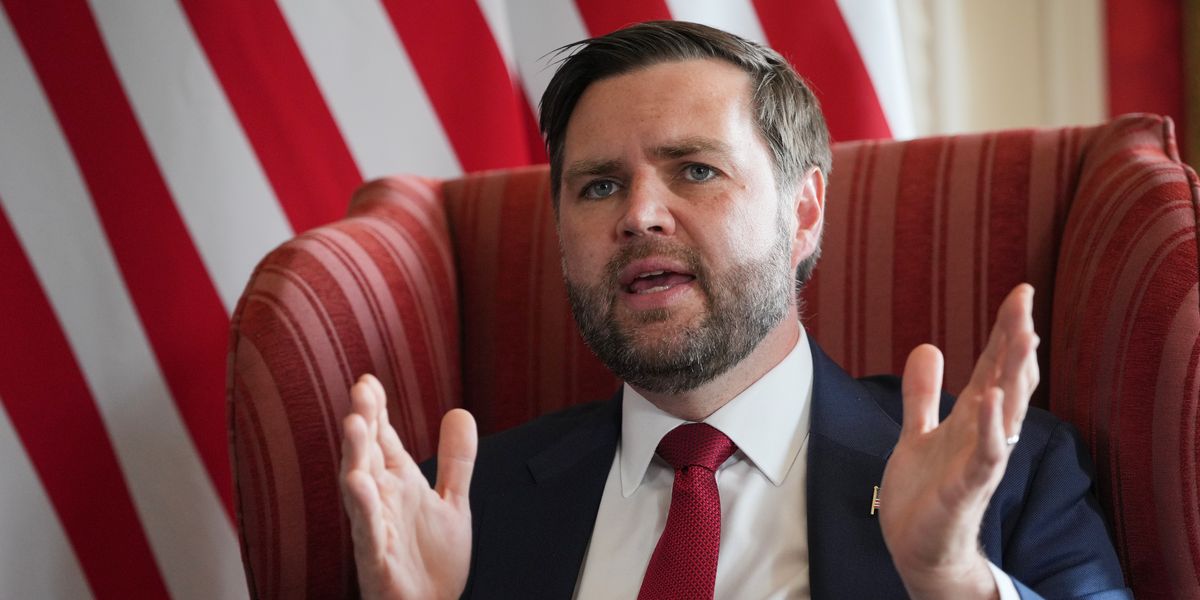Dear Yale: You may want a certain diploma back.
This is how wars ultimately get settled. If you go back to World War II, if you go back to World War I, if you go back to every major conflict in human history, they all end with some kind of negotiation.
That was vice president J Divan Vance on Meet the Press on Sunday, explaining why the Ukrainians should let Russia keep the land they’ve stolen, the children they’ve stolen, and the cities they’ve incinerated.
I thought it was very amusing that Vance mentioned the end of World War II shortly after we memorialized the 80th anniversary of how the United States negotiated the war’s end by dropping atomic bombs on two Japanese cities. Yes, in the strict historical sense, the war ended when the Japanese signed the surrender documents aboard the USS Missouri, just as the war in Europe had ended a few months earlier when the Germans surrendered while Dresden, Hamburg, and Berlin were still smoldering ruins and while the Red army was running completely amok in the east. Unconditional surrender is only a “negotiation” of your ultimate survival. One recalls General U.S. Grant’s last missive to General John Pemberton regarding the surrender of Vicksburg in July 1863:
The useless effusion of blood you propose stopping by this course can be ended at any time you may choose, by the unconditional surrender of the city and garrison. Men who have shown so much endurance and courage as those now in Vicksburg, will always challenge the respect of an adversary, and I can assure you will be treated with all the respect due to prisoners of war. I do not favor the proposition of appointing commissioners to arrange the terms of capitulation, because I have no terms other than those indicated above.
And this missive to Robert E. Lee at Appomattox:
The results of the last week must convince you of the hopelessness of further resistance on the part of the Army of Northern Virginia in this struggle. I feel that it is so, and regard it as my duty to shift from myself the responsibility of any further effusion of blood by asking of you the surrender of that portion of the Confederate States army known as the Army of Northern Virginia.
Yes, in both cases, Grant’s eventual terms were generous ones. But they were offered with the threat of utter annihilation behind them. “Effusion of blood” is the key phrase in both letters. That was Grant’s courtly way of saying, “Or I will feel free to kill every damn one of you, and we both know I could do that.” Was that negotiation? It was in the same way that a stickup kid negotiates the ownership of your wallet.
Jesus, these people are too damn weird.
